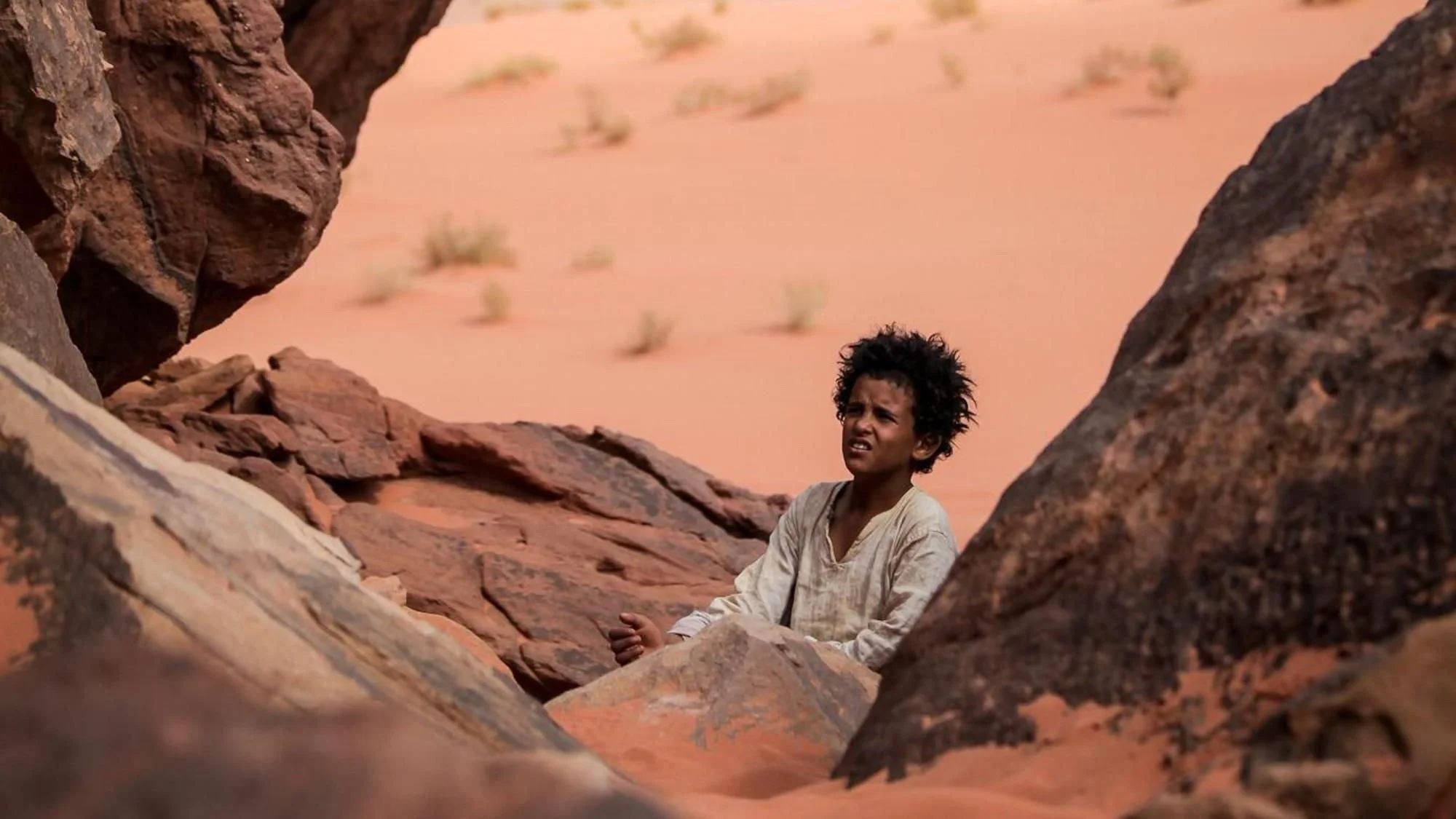Theeb
Now a BAFTA award winner, this film is a period tale shot on locations close to those used for David Lean’s Lawrence of Arabia.
Jacir Eid Al-Hwietat
Theeb may be set in Jordan in 1916 but many viewers will find in this tense tale strong echoes of westerns. Nevertheless, Bedouin customs are central to the story which begins with words of wisdom heard on the soundtrack. These represent what could be regarded as traditional lessons for life implanted in his children by a sheikh already dead when the film begins. It is his younger son who is the key figure here and who bears the name of Theeb (translated, it means Wolf), but his brother Hussein plays an important role too.
The customs of the Bedouins are such that it is seen as a duty to offer protection to any visitors who enter their home. Accordingly, Hussein’s family know what they must do after giving overnight shelter to a Bedouin guide and to the English soldier whom he is accompanying. Even when these strangers leave to take the pilgrims’ route to Mecca - a journey that can only be accomplished by those who can locate the wells in the area - the responsibility that the family owe to them is not yet over. Hussein is the one chosen to lead the way for them on his camel and, when young Theeb follows on his donkey, the party become four.
The story that plays out does so against a background of social and military intrigue with Ottoman rebels opposing plans bringing a railroad to the region which is also the concern of the Englishman. But, if the rail profiteers are clearly the villains of the piece, these historical political events are largely relegated to the background. The foreground grippingly engages us through two contrasted elements. The first of these is a western-style narrative with travellers at risk of being picked off by enemies. Subsequently, in rather different mode, Theeb becomes akin to a biblical parable on the subject of brotherhood.
If regarded as a morality tale and thus something still relevant today, the ending is not wholly satisfying, but there is no doubt about the film’s ability to sustain tension and it is a truly assured feature debut by its director and co-writer Naji Abu Nowar. As for the photography by Wolfgang Thaler using ’Scope and colour, it is a major part of the film’s strong appeal. The largely non-professional cast all do well.
MANSEL STIMPSON
Cast: Jacir Eid Al-Hwietat, Hassan Mutlag Al-Maraiyeh, Hussein Salameh Al-Sweilhiyeen, Marji Audeh, Jack Fox.
Dir Naji Abu Nowar, Pro Rupert Lloyd and Bassel Ghandour, Screenplay Bassel Ghandour and Naji Abu Nowar, Ph Wolfgang Thaler, Pro Des Anna Lavelle, Ed Rupert Lloyd, Music Jerry Lane, Costumes Jamila Aladdin.
A Bayt Al Shawareb production/Noor Pictures/Immortal etc.-New Wave Films.
100 mins. Jordan/UK/United Arab Emirates/Qatar/Switzerland 2013. Rel: 14 August 2015. Cert. 15.


